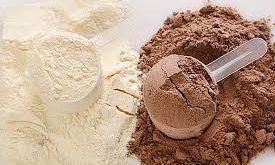Self-medication, and delayed diagnosis or treatment could have severe and sometimes fatal outcomes in Dengue.
Dengue a well-known vector-borne disease spreads through the bite of an infected female Aedes mosquito. The disease is primarily seen during the monsoon season, with potholes on the roads being filled up with rainwater, which acts as the breeding ground for this variety of mosquito. Untouched stagnant water collected in the buckets, containers, coolers, refrigerators, or balconies of our household forms yet another spot where the Dengue mosquito can breed with ease. The Aedes mosquito, breeds and rests in these dark places, and bites during the daytime. The transovarial transmission of the virus from an infected female mosquito to another through eggs and the survival of the eggs in a dry condition for over a year makes controlling this vector a tough ask.
The Hyderabad city scenario
Recently the city of Hyderabad has been in the news for rising cases of dengue. The number of dengue-affected people have gone up by an alarming 10 folds in August itself. The cases surged up from a meagre 164 cases to 1171 within just a month. As per the cases recorded during the first 8 months of the year, Hyderabad accounted for half of the dengue cases of Telangana State. The state recorded 2972 cases of Dengue while Hyderabad alone has accounted for 1562 cases out of that.
Dengue strains have changed with time
Dengue is an urbane disease and the main reason for its spread is the stagnant water on the roads and at the under-construction building sites. The late breeding of mosquitoes is also a factor which makes it hard to control the vector. The Dengue virus has evolved greatly in the past five decades. Initially, there were only two strains- DENV1 and DENV3 but after 2012 – DENV2 was the most dominant strain. Of late DENV4 is ruling the roost in South India. As far as mortalities are concerned the main cause behind that is a deadly complication, Dengue Shock Syndrome or Dengue Haemorrhagic Fever.
Symptoms and Diagnosis:
The disease begins with high fever (40°C/104°F), severe headache, pain behind the eyes and muscle, joint, or bone pains. “Pains in Dengue are sometimes so severe that dengue is often referred to as ‘breakbone fever’,” says Dr. K.K. Durga Prasad, Senior Consultant Paediatrician, Ankura Hospital for Women and Children. If any of these symptoms appear, the patients should be rushed to a hospital for medical consultation. Dengue symptoms like severe abdominal pain, persistent vomiting, rapid breathing, bleeding gums or nose, fatigue, swollen glands, rash, restlessness, blood in vomit or stool, being very thirsty, pale and cold skin and feeling weak, often come after the fever has gone away. Reduction in platelet counts is a characteristic feature of dengue and requires close monitoring.
In case your doctor suspects Dengue, then they will confirm it by a blood test. Various blood tests that detect different components of the virus or antibodies can be employed for early or late detection of Dengue. Serological methods can also be used for confirming any infection in the past.
Prevention of Dengue
The only way of preventing the disease is to take precautions against Mosquito bites by wearing full-sleeve clothes, through fumigation, using mosquito nets and repellents and keeping the surroundings clean. Early diagnosis, monitoring and initiation of treatment play a vital role in managing dengue.
Management / Treatment:
Dengue patients should be encouraged to drink plenty of fluids such as water, oral rehydration treatments, coconut water, and clear soups. Adequate hydration aids in the maintenance of blood volume and the generation of platelets. A balanced diet consisting of fruits, vegetables, whole grains, lean meats, and healthy fats should be provided to the patients. Foods rich in salt, spicy foods, and fried dishes with a lot of oil should be avoided. “Rest is one of the most effective treatments to recover from any sickness, but children may want to stay active even during disease. In case a child gets Dengue then parents should take caution to limit any strenuous activities of the child to make sure they get enough rest and allow their body to heal,” advises Dr. Durga Prasad.
Platelet count in Dengue needs to be checked regularly by a healthcare expert. Timely assessments will aid in determining the progress of treatment and the need for additional interventions. If the patient’s platelet count drops dramatically or he/she experiences bleeding issues, your doctor may recommend a specific drug or platelet transfusion. Vitamin and mineral-rich foods, such as vitamin K, iron, folate, and vitamin C, can aid in platelet synthesis and healing and should be provided. Foods like papaya, pomegranate, and citrus fruits can help raise low platelet levels. Because platelet reduction happens as a result of dengue, address symptoms such as fever, pain, and discomfort as soon as possible to minimize distress and encourage a faster overall recovery. Ankura Hospital recommends that it is critical to visit a healthcare professional, particularly in paediatric situations, for individualized guidance and treatment depending on the patient’s exact condition and severity of dengue. “People should not panic under any given circumstances, they should rather consult a doctor at a hospital who is better equipped to handle Dengue and its complications,” concludes Dr. Durga Prasa
Dr. K.K. Durga Prasad, MBBS, DNB (Paediatrics)
Sr. Consultant Paediatrician, Ankura Hospital for Women and Childcare
 Newspatrolling.com News cum Content Syndication Portal Online
Newspatrolling.com News cum Content Syndication Portal Online





